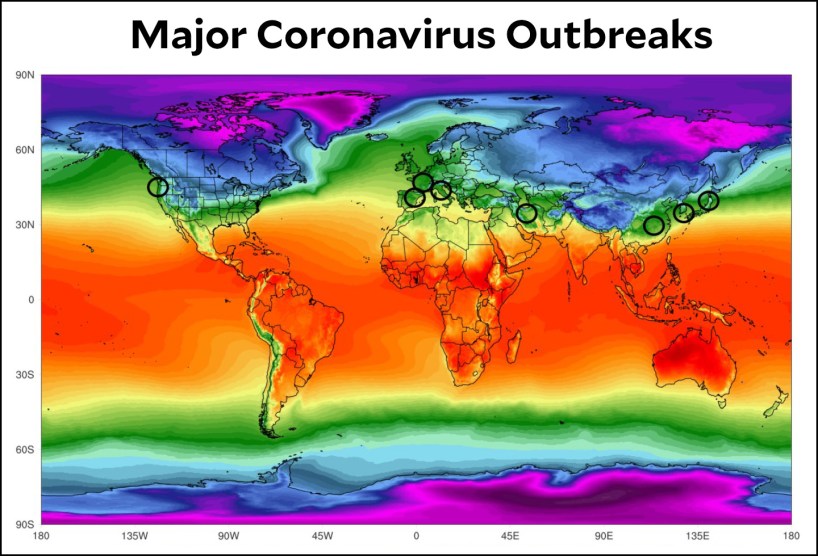
Maybe we'll get lucky and avoid big coronavirus outbreaks in the red areas, but I wouldn't count on it. We need to be prepared for ongoing large breakouts as the southern hemisphere enters fall and winter and starts to cool off.
I’m not sure I agree with everything Adam Tooze said in his recent interview with Ezra Klein about the economic impact of the coronavirus pandemic, but I agree with this:
I think the third element is the crisis that is hitting the big emerging markets: the South Africas, the Brazils, the Nigerias, and potentially the Algerians, the Indias, the Indonesias. These are huge countries with big economies, with large American interests in them, and big geopolitical ramifications. And they are in harm’s way. Their currencies are plunging, they have large debts, and they’re going to be hit by the public health crisis on a really epic scale — especially in South Africa, where they have a big immunocompromised HIV[-positive] population.
We don’t have a handle yet on whether COVID-19 is seasonal, but at this point it hardly matters. The southern hemisphere is entering fall, which is coronavirus season no matter what, and they are less prepared to handle it than the rich countries of the northern hemisphere. Nor do they have the financial cushion that rich northern countries have. Financially, the United States is lucky: we have our own currency; we’re enormously rich; we have a highly advanced health care system; and we can afford things like a debt-financed $2 trillion rescue without even blinking an eye. The same is not true of Nigeria or South Africa or India.
If you’re a sociopath, maybe you don’t care. But you should anyway: if the economy of the global south implodes, it will have an impact on us that no puny $2 trillion bailout can fix. So if anyone is thinking about this—Donald Trump certainly isn’t, so it’s up to someone else—we should start making plans for things like temporary debt holidays; longer-term debt restructurings; plain old assistance grants on a huge scale; and ramping up production of medical supplies far beyond our own needs and timeframes.
Is anyone thinking about this? I would like to think so.








